Charger GyrFalcon All-88 (Enova)
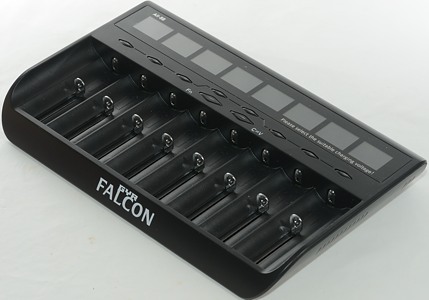
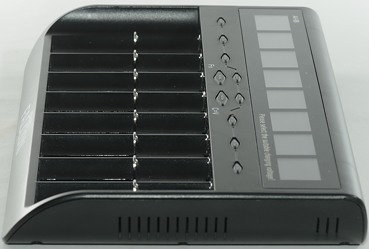
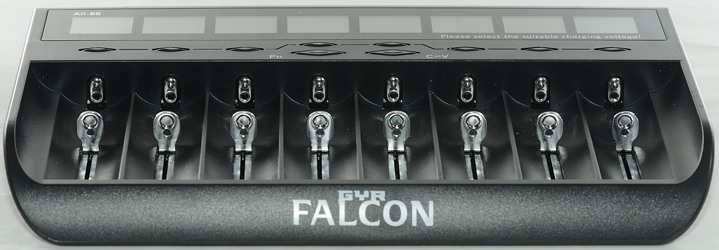
Enova makes many different chargers, some time ago I tested many of them, include a 8 slot charger. This charger here is a completely new design that is a much more versatile charger. It can charge most types of round cells on the market. The reviewed version is a pre-release version.
The charger uses a very flat design, it is only 32mm high.
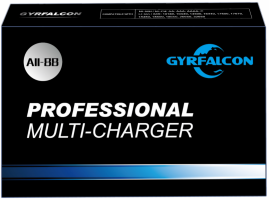




I got the charger before the box was finished, instead I got these renderings on how the box is going to look.
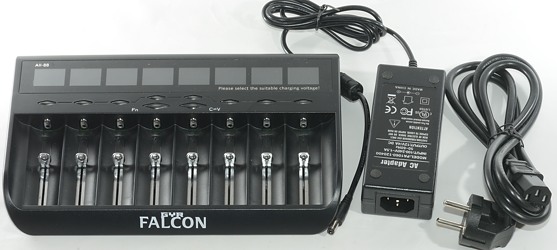
Because I got the charger and a power supply a bit before the release date, there was no manual included.
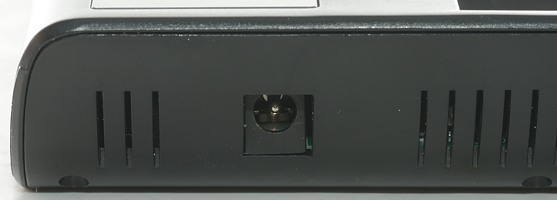
The DC input is the usual barrel connector and it is rated for both 12V and 24V input, making it possible to use the charger in a car.
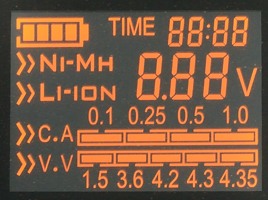
The display has many elements on it, because the charger can handle many types of cells.

Here the charger is working with 3 different cell, each with its own setting.
The C.A line shows selected current and is also used to select current when the ">>" marking is at this line.
The V.V line shows selected charge voltage and is also used to the select voltage when the ">>" marker is flashing at this line.
The battery icon is animated when the charger is charging.
The display will automatic dim after some time, any button press will bring it back to full brightness.

The full user interface with 8 readouts and 10 buttons, one for each slot and two special buttons. All buttons has a leds in them.
The slot buttons will show a green (blue in release model) led while charging and a red led when done.
Start a slot (Method 1):
Press button for slot to select it.
Press button for slot again to select voltage.
Press CV to select current setting.
Press button for slot to select current.
Press CV to select voltage setting again.
Hold button for slot down to start charging.
Start a slot (Method 2):
Press button for slot to select it.
Press button for slot again to select voltage.
Hold button for slot down to start charging.
Press CV to select current setting.
Press button for slot to select current.
The above methods are rather long if you want to charge many cells, the charger has some shortcuts to handle that:
Hold button for charging slot down and tap button for other channel will copy the settings and start charging on the other channel.
Hold Fn down and press CV will select 1A and 4.2V charge voltage for all idle slots, pressing multiple times on CV will change voltage.
These short-cuts means that charging any number of (4.2V) 18650, 26650, 32650 can be started by holding Fn down and tapping once on CV.
Charging any number of AA can be starting by holding Fn down and tapping CV twice.
Due to the long display the brightness is not uniform in the display.
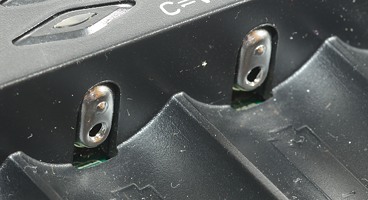
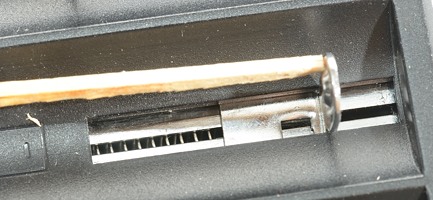
The sliders work very smooth and can handle from 30.0mm to 71.2mm, up to ø26mm cells can be placed in each slot and it is possible to use ø32mm cells in each other slot if they have a large top (i.e. LiIon will usual work, but not NiMH D cells).
Due to the wide slots, care has to be taken with thinner batteries to get a connection.
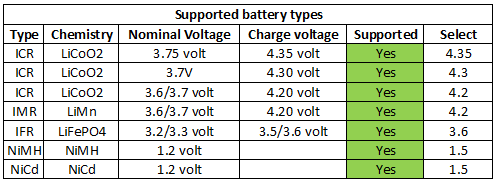
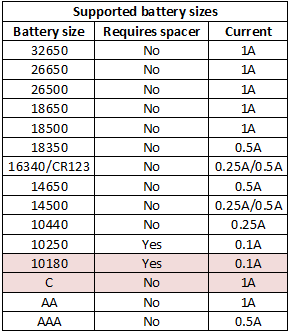
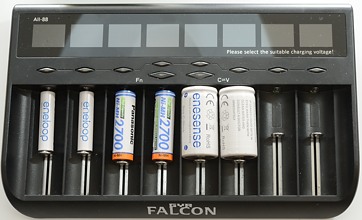
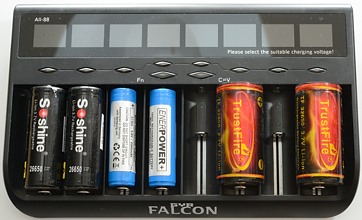
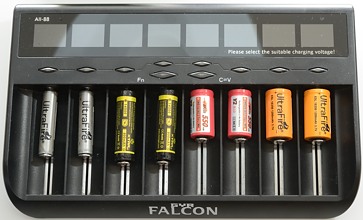
The charger can handle 71 mm long batteries including flat top cells.
With 10180 cell the 100mA charge current is on the high side, but because most 10180 are high current cell it will usual be acceptable.
C cells has a tendency to slide of the plus connection.
Measurements on charger
- Power consumption when idle is 1.5 watt
- Will discharge a LiIon with 0.1mA when not charging.
- Will discharge a NiMH with 0.03mA when not charging.
- Will not charge at 0 volt.
- LiIon charging start at 0.6 volt with a few mA.
- NiMH charging start at 0.6 volt with selected current.
- From about 1.5 volt to 3.0 volt it will charge with 50mA (All LiIon chemistries)
- Above 3.09 volt the select current will be used
- Meter starts working at 0.7 volt, but is first precise at around 1 volt.
- Meter is within 0.03 volt.
- Meter stops updating when battery is full.
- Meter will not reduce reading.
- Charger will restart silent if LiIon battery voltage drops below 4.05 volt.
- Charger cannot be restarted with a nearly full battery.
- Power cycling and insertion of a battery requires button press to start charging.
Charging 4.20V LiIon cells
%20%231.png)
A good CC/CV charge curve with about 100mA termination current.
%20%232.png)
%20%233.png)
%20%234.png)
%20%235.png)
%20%236.png)
%20%237.png)
%20%238.png)
All the other slots look the same, but there is a small variation in final voltage, it is within acceptable tolerances.
%20%231.png)
%20%231.png)
Different capacity means changes in charge time.
This charger has a fairly flat CV phase, this means the charging is as quick as possible. The higher voltage on the 2600mAH cell does not force the charger into a pseudo CV phase at an early stage.
%20%231.png)
This old cell reaches CV phase fairly fast.
%20%231.png)
The lowest charge current is 0.1A and the charger will adjust termination current down to about 13mA.
This current is mostly for very small cells, that requires the use of a spacer.
%20%231.png)
%20%231.png)
%20%231.png)
The 0.5A current is fine for 14500/18350 and other cells with 0.6Ah to about 1.3Ah and it works fine.
.png)
The charger can charge 8 cells with 1A simultaneous.
.png)
Doing this requires about 3.5A from the power supply.
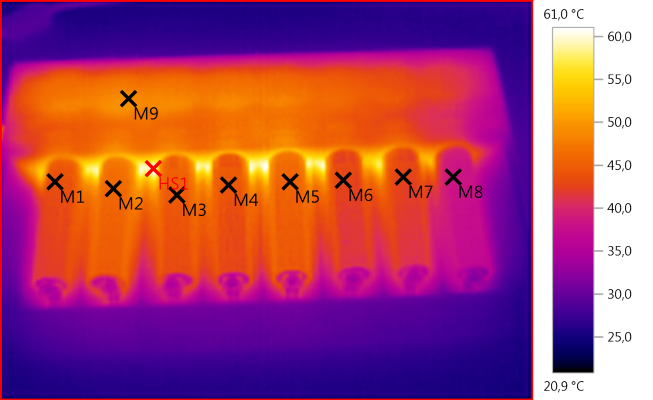
M1: 43,5°C, M2: 45,9°C, M3: 44,6°C, M4: 44,3°C, M5: 45,5°C, M6: 42,7°C, M7: 42,7°C, M8: 38,4°C, M9: 49,0°C, HS1: 61,0°C
Some heat will be generated at this current, but the temperature is acceptable.
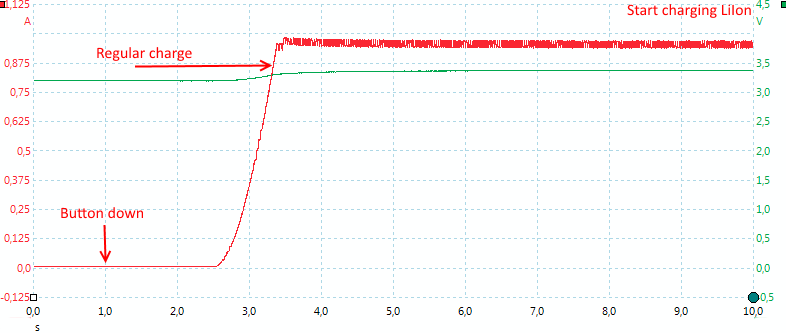
To start charging hold the button down for 1.5 to 2 seconds, the current will ramp up and the charging commence.
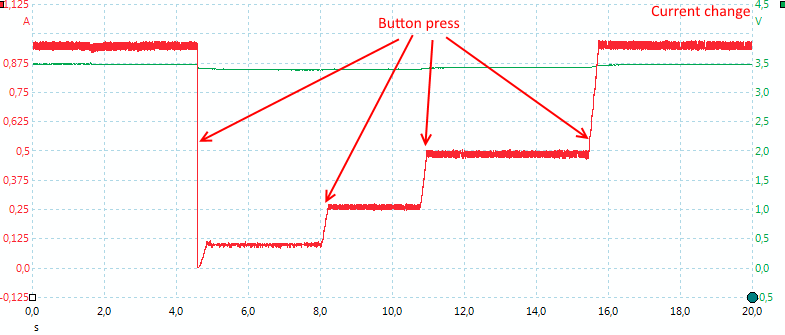
It is possible to change current during charge. To do that first press the slot button, then the CV button, now the slot button can be used to change current.
Charging 4.35V LiIon cells
%20%231.png)
The charger supports both 4.30V and 4.35V cells, I only did a test with 4.35V and it looks fine.
The way the tolerances (+/-0.05 volt) falls on this slots, means it could charge both 4.30V and 4.35V cells on the 4.35V setting (On slot #3 that would not be acceptable).
Charging 3.6V LiFePO4 cells
%20%231.png)
%20%231.png)
%20%231.png)
The charger works perfectly with LiFePO4 cells.
Charging NiMH cells
It is possible to start a NiMH cell on a LiIon program, but it is not dangerous. Charge current will be low and the charger will stop after a few hours.
%20%231.png)
The NiMH charging stops on -dv/dt and looks fine.
%20%232.png)
%20%233.png)
%20%234.png)
%20%235.png)
%20%236.png)
%20%237.png)
%20%238.png)
On all slots, there is a small difference in current, but that is not important.
%20%231.png)
%20%231.png)
%20%231.png)
The 3 high capacity cells are also terminated perfectly.
%20%231.png)
No problem with an AAA cell.
%20%231.png)
This cell is not supposed to terminate, because -dv/dt do not work at this low current, but somehow the charger do terminate (Very good).
In the release version the charger will stop earlier due to timeout.
%20%231.png)
As usual -dv/dt is some time to terminate on a full cell, about 12 minutes is a fairly good time.
.png)
The charger has no problems with charging 8 cells at full current.
.png)
With NiMH it uses about 1.8A from 12 volt.
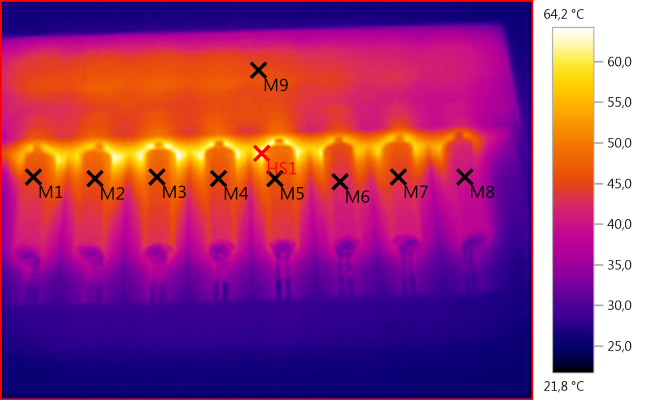
M1: 45,3°C, M2: 46,2°C, M3: 46,9°C, M4: 45,6°C, M5: 46,5°C, M6: 43,1°C, M7: 43,8°C, M8: 40,1°C, M9: 45,3°C, HS1: 64,2°C
The charger gets warm, but not too hot.
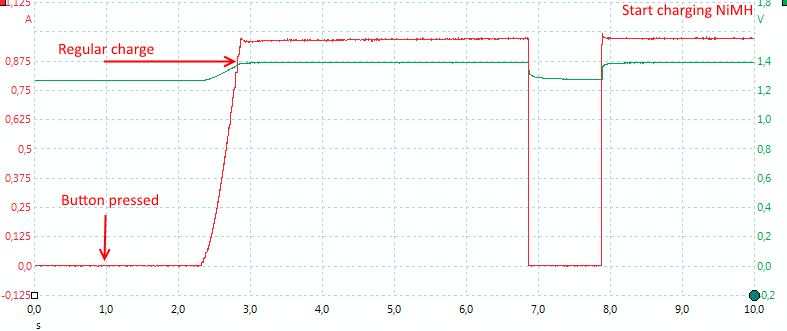
Starting is exactly the same as for LiIon.
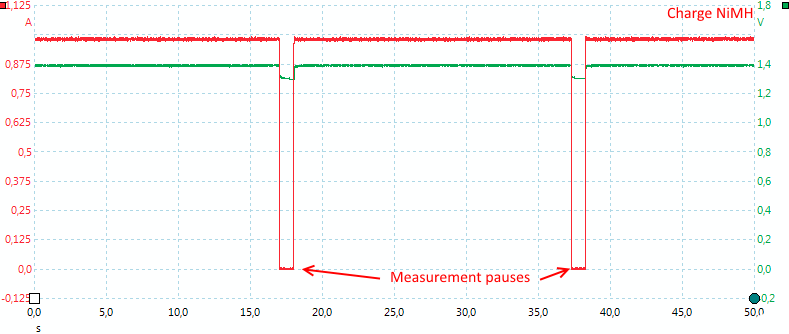
With NiMH the charger stops every 20 seconds to check the voltage of the cells.
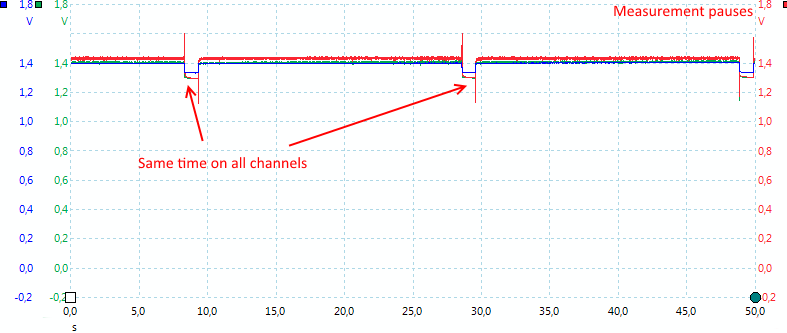
Many slots stop at the same time (I did only check 3), this means the input current will pulse (As can be seen on the 12V chart).
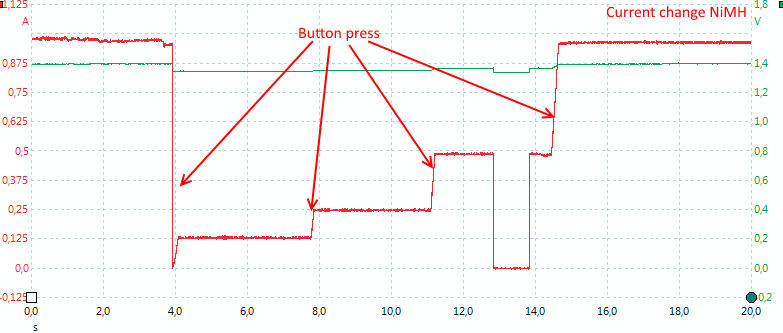
It is possible to change current during charging.
Testing the mains transformer with 2500 volt and 5000 volt between mains and low volt side, did not show any safety problems.
Conclusion
This is a fairly advanced charger with support for most round cells on the market, both fairly large and very small. At first glance it might look complicated to use, but it is not and it is also fast to use for 1A charging on NiMH and 4.20V LiIon. Other types of cells requires a few more keypresses, the short-cuts makes it fast to setup many of the same cell.
The charger has some small text on the display and it is required to check it before charging. The charger will not start automatic, it is always necessary to press some keys to select voltage and current.
Due to the wide slots, it is necessary to be a bit careful when loading thinner cells (Like AA), they have to be centered in the slot.
I will rated this charger as a very good charger, but it requires a bit care when starting a charge.
Notes
The charger was supplied by Enova for review.
Changes on the release model:
- Time limits on NiMH charging (in the 5-10 hour range).
- The charger will use red and blue leds (not green).
- 4 spacers included for easier connection to smaller cells.
Here is an explanation on how I did the above charge curves: How do I test a charger




















%20%231.png)
%20%232.png)
%20%233.png)
%20%234.png)
%20%235.png)
%20%236.png)
%20%237.png)
%20%238.png)
%20%231.png)
%20%231.png)
%20%231.png)
%20%231.png)
%20%231.png)
%20%231.png)
%20%231.png)
.png)
.png)



%20%231.png)
%20%231.png)
%20%231.png)
%20%231.png)
%20%231.png)
%20%232.png)
%20%233.png)
%20%234.png)
%20%235.png)
%20%236.png)
%20%237.png)
%20%238.png)
%20%231.png)
%20%231.png)
%20%231.png)
%20%231.png)
%20%231.png)
%20%231.png)
.png)
.png)




